Acclaimed Danish film director Susanne Bier waited 25 years to make her TV debut - with a thriller that had taken almost as long to get to the screen.
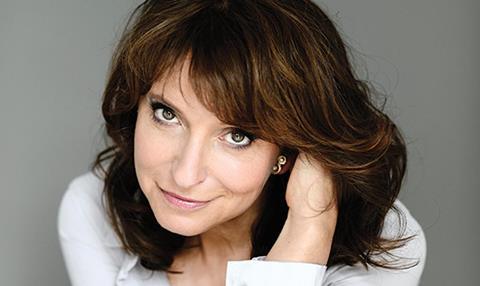
Susanne Bier is on a mission: to seduce the audience. For BBC/AMC thriller The Night Manager, the director wants viewers to imagine themselves embroiled in John le Carré’s opulent but dangerous world of international espionage – even if they know they shouldn’t be.
She isn’t targeting the escapism of Bond, nor the rubbing-your-nose-in-it of Scorsese’s gangsters and Wall Street traders; she is on a high-wire somewhere in between.
“The whole trajectory of the eponymous hotel manager is that he finds himself immersed in a world of wealth,” she says. “At some point, he becomes seduced by it. I know I’m seduced by it. I want to be in this world, even though my conscious mind knows it’s evil. I want to be attracted to it.”
Moving into TV
So what seduced Bier to shift gears from her successful movie career, first in her home country, Denmark, and then, after winning the 2011 Best Foreign Language Oscar for In A Better World, in Hollywood? This is, after all, the first TV project of her 25-year career.
“When I read the script for episode one, I thought: ‘I absolutely want to do this.’ And that’s quite rare for me,” she recalls. The commitment of Hugh Laurie, a le Carré devotee who had been eyeing up a potential adaptation of the novel since its publication 23 years ago, certainly helped.
“He’s one of the most charming men in the world,” she laughs. “Other than Le Carré, he’s probably the most knowledgeable person on this project.”

Film treatments of the novel had been kicking around for some time, but Bier argues that the story is simply too big to be contained in two hours. With the luxury of six, hour-long episodes, Bier and screenplay writer David Farr (Spooks, Hanna) have sought to go deep into the psychology of the characters that populate the thriller.
Laurie’s chilling performance as the villain of the piece, arms dealer Richard Roper, plays on his charming persona to great effect. “To me, great comedians can do anything and, like all comedians, he has a vulnerability that you can use to an extreme degree. There are no lacerations in Roper’s armour, and you must sense that he’s dangerous, because he will do whatever it takes at any time. There’s an unscrupulousness about him that has no boundaries.”
Squaring off against him as soldier-turned- hotelier Jonathan Pine, Tom Hiddleston proves an equal match, but makes for an ambiguous hero. “Tom has this immaculate surface but there’s always a part of him where you aren’t quite sure what he’s actually thinking, which is incredibly interesting,” Bier says.

Once both were signed, their small overlapping windows of opportunity forced the series into production fast, not least as another lead, Olivia Colman, revealed she was pregnant. Her turn as intelligence officer Burr, who recruits Pine to infiltrate Roper’s inner circle, was one of the biggest deviations from the book, in which the character was male. “There’s something about her that fits le Carré’s description so much and her pregnancy added an extra sense of urgency to the character.”
Bier’s schedule on The Night Manager was far more accelerated than on any of her films, but she found that being in a hurry could resolve conflicts, particularly having to serve two broadcasters. “The fact that they knew we had this limited window eliminated a whole lot of worries,” she reflects. “Every one was just keen to make decisions. My reaction to their notes was ‘that’s interesting’ – not, ‘they don’t get it’.”
Collaborative approach
Le Carré, too, was a constant presence as an executive producer, but Bier wasn’t daunted. She approaches directing as a collaborative medium; one in which she has a strong creative signature, but also one that can accommodate different perspectives in the hope of delivering a more satisfying whole.
“In a magical way, everybody here – possibly subconsciously – was aiming for the same thing. Any creative input was part of a bigger collaborative effort. I was dealing with loads of locations, material and characters. Navigating the chaos has been the fun and the challenge of it.”
Nevertheless, she is unafraid of being dictatorial. “You need to be in control, as it has to coalesce into one coherent piece that gets finished on time. But in a way, the more assertive you are about what you want and what you don’t, the easier it is to collaborate, because you know how to use any suggestions within the framework of the goal you’ve set up.”

Despite shorter filming times and a slightly smaller budget, Bier doesn’t draw many distinctions between film and TV directing. Citing the strong director’s vision behind HBO series such as True Detective, she asserts: “You don’t hire a director like me unless you want some kind of artistic identity. It’s implicit in the choice.”
For this reason, you won’t see her guest-directing any longer series: “I don’t think I could invisibly slip into something, and nor would I want to. I do want to do more television but I’d want to put my own stamp onto it.”
Bier is encouraged by the amount of great writing gravitating towards TV. So what does she watch? “Anything in which I can get seriously invested in the characters,” she says, name-checking Downton Abbey, Breaking Bad, Mad Men, Happy Valley, The Good Wife and more. “If I had half a year where I didn’t have to do anything, I would probably catch up with 10 more.”
As for whether this is a permanent move into TV, she won’t be drawn, but it’s clear that the experience has given her a thirst for more. “I just feel very privileged to have been asked to deal with such a wealth of material. It’s one of the most fun things I’ve ever done.”
SUSANNE BIER ON… GETTING THE LOOK

“In The Night Manager, locations are real players. We filmed in two luxury hotels, in Cairo and San Made in Switzerland. They’re both places of extreme beauty but the contrast couldn’t be greater: Cairo is this huge, hot, sensuous city and San Made is this serene, beautiful, still, cold village.
“It’s a change from the book, which is set in Crete and South America, but the core stays true to the story. Filming in Switzerland is not something you do gladly because it’s hugely expensive. We had a lot of discussions about it, but it’s an iconic representation of serene beauty, chaos and wealth.
“Unless for very specific sequences, I don’t work with storyboards, but I use mood boards. We had big walls in the production office, with photos, bits of material, all sorts of things. Because these characters travel so much, part of what creates their identity is their costume, their jewellery and the things they carry with them.”
Avoiding clichés
“When you portray a world of wealth, it can become clichéd, particularly when you depict women. There’s a tendency for them to have a conventional look, which I don’t really like: the blond, sun-tanned wife or girlfriend of the wealthy man.
“We had the virtue of actress Elizabeth Debicki, who is incredibly, classically beautiful but way more mysterious and artistic-looking. This is a masculine world that doesn’t depict the women in it as objects or victims.”
- The Night Manager is produced by The Ink Factory and will air on BBC1 on Sunday nights from 21 February


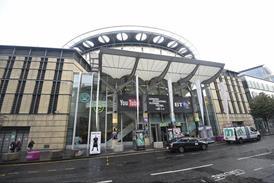




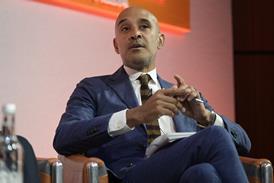
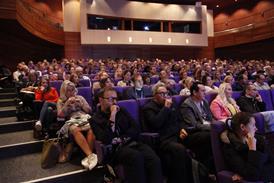
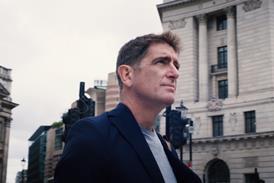
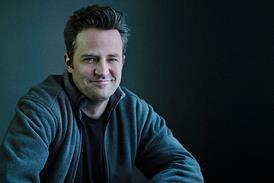
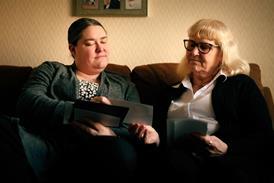
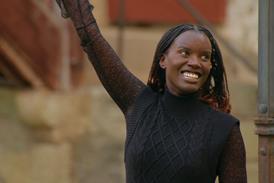
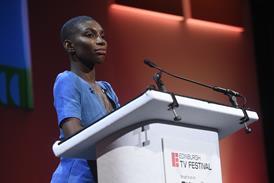
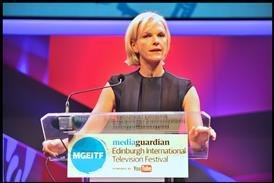

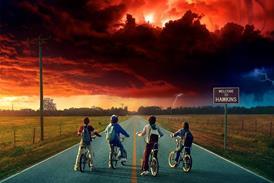
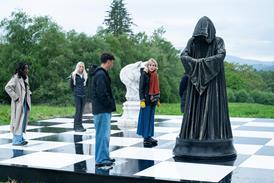
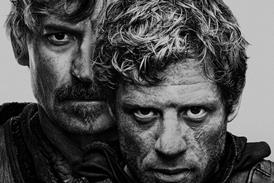
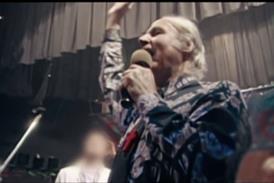
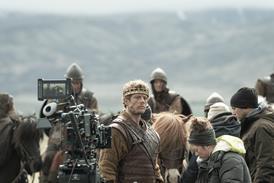
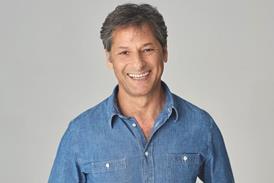






No comments yet